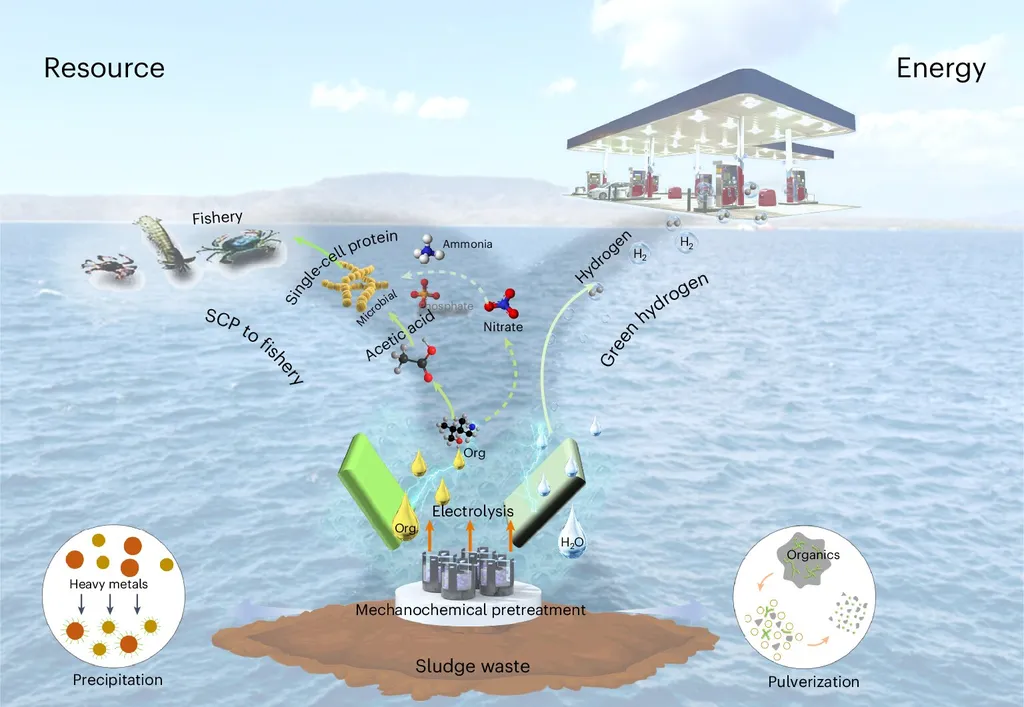In the quest for sustainable energy solutions, researchers have turned to an unlikely source: sewage sludge. A recent study published in the *Journal of CO2 Utilization* (translated as *Journal of Carbon Dioxide Utilization*) explores how this waste product from municipal wastewater treatment can be transformed into a valuable resource through a process called supercritical water gasification (SCWG). The research, led by S. Dhivya from the Department of Research and Innovation at Saveetha School of Engineering in Chennai, India, offers promising insights into hydrogen production and waste valorization.
The study focuses on optimizing hydrogen production from sewage sludge using alkali catalysts like potassium hydroxide (KOH), potassium carbonate (K₂CO₃), and sodium carbonate (Na₂CO₃). By varying the temperature (450–550°C), reaction time (5–30 minutes), and catalyst type, the researchers analyzed the effects on gas yield and efficiency. The findings are compelling: at 550°C, the highest carbon efficiency (61%), gas efficiency (69%), and hydrogen yield (41 mol/kg) were observed. After 30 minutes, the gas composition reached an impressive balance of hydrogen (58%), carbon dioxide (26%), methane (11.7%), and carbon monoxide (4%).
Among the catalysts tested, sodium carbonate (Na₂CO₃) stood out, exhibiting superior hydrogen yield (29 mol/kg), carbon efficiency (58%), and gas efficiency (51%). “The results highlight the potential of SCWG as a viable technology for hydrogen-rich gas production,” said Dhivya. “This process not only addresses the growing challenge of wastewater management but also contributes to sustainable energy solutions.”
The implications for the energy sector are significant. As the world seeks to reduce its reliance on fossil fuels, the ability to produce hydrogen from waste materials offers a dual benefit: environmental remediation and energy generation. “This research opens up new avenues for commercial applications in the energy sector,” Dhivya added. “By optimizing the SCWG process, we can enhance the efficiency and economic viability of hydrogen production from waste.”
The study’s findings could shape future developments in the field of thermochemical conversion and carbon utilization. As the technology matures, it may pave the way for large-scale implementation, providing a sustainable and cost-effective solution for both wastewater treatment and energy production. The research published in the *Journal of CO2 Utilization* underscores the importance of innovative approaches to waste management and energy recovery, offering a glimpse into a future where waste is not just discarded but transformed into a valuable resource.

